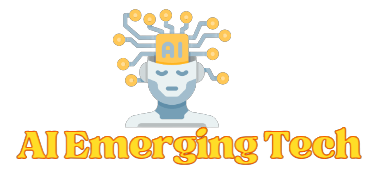Introduction
The human brain has long been a source of intrigue because it is one of the most intricate and complex organs known to man. Researchers have been able to reveal the layers of this mysterious organ during the past few decades because to outstanding developments in neuroscience, which have cast light on its inner workings and revealed its secrets. This article explores some of the most important scientific advances and discoveries in the field of neuroscience, demonstrating how these results have revolutionized our knowledge of the human brain and its enormous effects on cognition and behavior.
1. Mapping the Connectome
The mapping of the human connectome is one of the most ambitious and ground-breaking undertakings in neuroscience. The comprehensive map of the brain's neuronal connections is referred to as the connectome. Scientists may now examine the complex neuronal networks of the brain without intrusive procedures thanks to improvements in neuroimaging techniques like diffusion MRI and functional MRI (fMRI). Insights into how various brain regions interact and communicate have been gained by researchers through the creation of intricate connectome maps, offering important knowledge about normal brain function and neurological illnesses.
2. Plasticity and Neurogenesis
It used to be widely accepted that beyond early childhood, the brain's structure remained mostly fixed. The brain can change and rewire itself in response to experiences and learning, according to neuroscientists who have now discovered this extraordinary property of the brain. The idea that neurons cannot regenerate in maturity has also been called into question by the discovery of adult neurogenesis, the production of new neurons in certain brain regions. These findings raise the possibility of developing treatments for mental illnesses, degenerative diseases, and brain traumas.
3. Brain-Computer Interfaces
The brain and other external devices now have more ways to communicate and interact because to developments in brain-computer interface (BCI) technology. BCIs give users the ability to directly command computers, artificial limbs, and even robotic exoskeletons with their thoughts. For people with severe motor limitations, this technology has important consequences since it improves their freedom and quality of life. BCI systems are being improved continuously to increase their precision, responsiveness, and accessibility to a larger range of users.
4. Decoding Neural Activity
Scientists have been able to interpret the brain activity patterns linked to different cognitive functions and emotions because to advances in neuroscience. Machine learning and pattern recognition techniques have been effectively used in studies to locate neural signatures associated with memory, decision-making, language processing, and emotional states. This information gives us a better understanding of how the brain works, opening the door to possible uses in brain-computer interface technology and cognitive enhancement.
5. Brain Disorders and Mental Health
We now understand much more about a wide range of brain illnesses and mental health issues because to advancements in neuroscience. Neurological anomalies have been linked to illnesses like Alzheimer's disease, schizophrenia, depression, and anxiety disorders, among others. These discoveries provide millions of people affected by these disorders hope for earlier diagnosis and more focused therapies, which will ultimately improve their quality of life.
Conclusion
Neuroscientists from all around the world are still fascinated by and challenged by the ongoing process of unraveling the human brain. Advances in neuroscience have revolutionized our understanding of this complex organ, from mapping the intricate neuronal connections to comprehending brain plasticity and deciphering neural activity. The use of neuroscience research ranges from the creation of cutting-edge brain-computer interface technologies to the discovery of effective medicinal therapies for brain illnesses. Neuroscience provides the possibility of fresh discoveries that will provide new insights into human cognition, behavior, and mental health as technology and research methodologies develop. In the end, these innovations have the power to completely transform medicine, technology, and our conception of what it means to be human.






Post a Comment